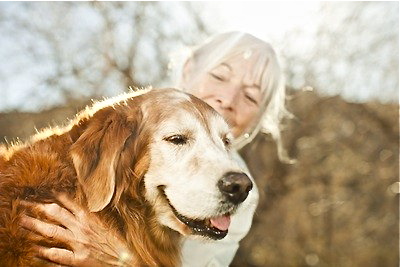It is commonly believed that feeding geriatric dogs and cats normal or high amounts of protein can cause kidney disease or make existing kidney disease worse.
Food manufacturers prey on this belief by offering lower protein foods for geriatric dogs and cats, when in actuality, geriatric companions benefit from higher protein diets.
Prolonged feeding of special veterinary kidney diets to animal companions without clinical signs of kidney disease can cause unnecessary muscle loss, a compromised immune system, and osteoporosis.
Why the Confusion?
Early studies in rats showed that kidney disease slowed when animals were fed lower protein diets. This research heavily influenced the thinking of the veterinary community despite the lack of research in dogs and cats that demonstrated the same results. The cause and progression of geriatric kidney disease and failure still eludes us.
What is true of low and ultra-low protein diets in animals with kidney failure is that it reduces the symptoms created by the disease. The metabolism of protein and amino acids produces ammonia. The liver converts this ammonia to a less toxic chemical called urea. Urea is then safely filtered from the blood into the kidneys and evacuated from the body in the urine.
Animals with kidney disease have a decreased ability to rid the blood of urea. As blood urea nitrogen or BUN increases in the blood it causes other harmful chemical changes, reduces the appetite, and can even cause painful sores in the mouth that become infected and suppress appetite even further. The breath of animals with severe kidney disease actually smells like urine!
Feeding low or ultra-low protein diets reduces the amount of ammonia that the body must convert to urea. The lowered BUN decreases some of the other chemical changes, so clinically these animal companions feel better, their appetite improves, and their oral sores heal.
The diet does not alter the severity of the kidney disease or the further progression of the disease; it only reduces the other symptoms associated with the disease.
Because advanced kidney failure is a fatal condition, the long term side effects of a low protein diet simply do not matter. Comfort and quality, however long, is the goal.
With cats this is particularly difficult, because they are less tolerant of low protein diets and will refuse to eat. Again, it is finding that right balance between symptoms and quality of life, not impossibly curing or slowing the disease.
Low Protein Problems
The effects of malnutrition generally occur over a long period of time. That is why feeding an older animal low protein food due to the mistaken notion of preventing kidney disease is a problem. Even animals with early indications of kidney disease (elevated BUN and creatinine, moderate increase in water intake), but without clinical signs, will probably live long enough to suffer the same malnutrition issues if put on these diets.
As animals and humans age they lose muscle tissue. This phenomenon is called sarcopenia. As muscle tissue mass decreases so does muscle strength. That is why old people are less steady or have difficulty catching their balance.
Our animal companions may show similar symptoms with changes in their movements and a reluctance to jump up or climb. Sarcopenia, especially in dogs, accelerates if the companion has arthritic or neurological conditions that limit activity. You can actually see the atrophy (shrinkage) of their muscles, especially in the hind limbs or along the spine.
Studies have shown that diets with higher levels of protein increases the percentage of muscle tissue and decreases sarcopenia in geriatric subjects. Feeding a low protein diet would do the opposite and increase muscle loss.
The cells of the immune system rely on ready sources of protein and amino acids to produce antibodies and other protective chemicals. Long term feeding of inadequate amounts of protein can decrease the speed and effectiveness the immune response. Geriatric patients are the very group that needs a strong, vigilant immune system.
When people think of bone they think of the calcium and phosphorus minerals. Few appreciate that the strength of bone is due to those minerals intertwined in a protein web. Much of bone tissue is actually protein. Without adequate protein for this web, bone cannot maintain its strength and density.
Low protein diets can increase age related osteoporosis. It is sad to view osteoporotic bones in the X-rays of animals that have been on long-term low protein diets; animals that had no evidence of kidney disease or had only early indications of impending kidney disease.
The Take Home
Dietary protein levels do not cause or alter the course of kidney disease. Low dietary protein only decreases the symptoms associated with kidney failure, not slow it or cure it. Geriatric pets require the same or more protein than younger animals, especially active seniors. Old pets may be special, but not with regards to protein.
Selected from petMD.com




